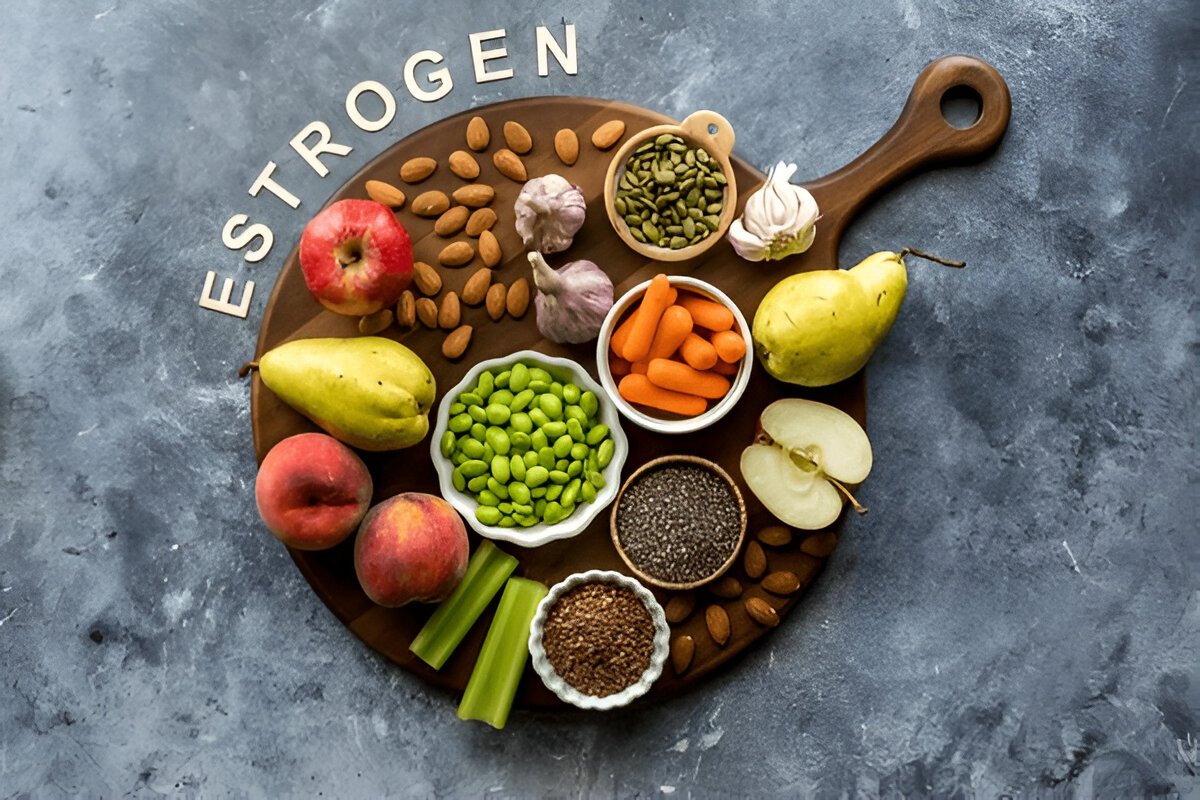
Hot flashes are one of the most common and frustrating symptoms experienced by women, particularly during the menopausal transition. Characterized by sudden warmth, sweating, and flushing, hot flashes in women can disrupt daily life, and even more so when they strike at night. But did you know that what you eat could play a significant role in managing these symptoms?
By making a few smart additions to your diet, you can reduce both the frequency and severity of hot flashes naturally. In this blog, we’ll explore what to eat, the causes of hot flashes in women, and what you can do to reduce the discomfort, especially hot flashes at night in women.
The Science Behind Hot Flashes
Hot flashes occur when estrogen levels fluctuate and eventually decline during perimenopause and menopause. These hormonal changes confuse the body’s temperature regulation system, leading to sudden waves of heat, rapid heartbeat, flushing, and night sweats.
Important statistics:
- According to the North American Menopause Society, about 75% of menopausal women experience hot flashes.
- Around 30% of these women rate their hot flashes as severe.
- The average duration of hot flashes is about seven years, but in some cases, they may continue for more than a decade.
While hormone therapy is one treatment option, many women seek dietary or natural solutions to avoid side effects or health concerns related to hormone replacement therapy (HRT).
Common Causes of Hot Flashes
The primary causes of hot flashes include:
- Hormonal changes during perimenopause and menopause
- Stress and anxiety
- Dietary triggers such as caffeine, alcohol, and spicy foods
- Obesity, which can amplify symptoms
- Smoking, which affects circulation and hormone levels
By identifying and minimizing these causes—and pairing them with the right nutritional choices—you can take control over your body’s response.
What to Add to Your Diet to Help Fight Hot Flashes
Certain foods contain nutrients and plant compounds that support hormonal balance, reduce inflammation, and regulate body temperature. Here are the top dietary additions that can help:
1. Phytoestrogens (Plant Estrogens)
These natural compounds mimic estrogen in the body and may help reduce the severity of hot flashes.
- Found in: Soybeans, tofu, tempeh, flaxseeds, chickpeas, lentils
- Tip: Add tofu to stir-fries or blend flax seeds into smoothies.
2. Omega-3 Fatty Acids
These healthy fats reduce inflammation and support overall hormonal health.
- Found in: Fatty fish (like salmon), walnuts, chia seeds, flaxseeds
- Tip: Aim for at least two servings of oily fish per week.
3. Vitamin E
Known for supporting skin and cardiovascular health, vitamin E has also shown some promise in reducing hot flashes.
- Found in: Almonds, sunflower seeds, spinach, avocado
- Tip: Add a handful of almonds as a daily snack.
4. Whole Grains
Whole grains stabilize blood sugar levels, which helps regulate mood and energy—often fluctuating during menopause.
- Found in: Brown rice, oats, quinoa, barley
- Tip: Replace white rice or bread with whole grain versions.
5. Calcium and Vitamin D
These nutrients are vital for bone health and may also assist in regulating mood and sleep quality.
- Found in: Fortified plant milks, leafy greens, salmon with bones
- Tip: Enjoy a daily green smoothie with kale and fortified almond milk.
Hot Flashes at Night
Hot flashes, commonly referred to as night sweats, can seriously disrupt sleep and leave you exhausted the next day. In addition to your diet, here are a few lifestyle changes that may help:
- Stay hydrated to help regulate body temperature.
- Avoid spicy foods, caffeine, and alcohol, especially in the evening.
- Keep your bedroom cool and wear breathable cotton sleepwear.
- Practice relaxation techniques like deep breathing or meditation before bed.
Pairing these practices with nutrient-rich foods can reduce nighttime hot flashes and improve your sleep quality.
Conclusion
While every woman’s body is different, modifying your diet can be a powerful and natural way to manage hot flashes. Nutrient-rich foods like soy, flaxseed, leafy greens, and omega-3-rich fish don’t just benefit from hot flash symptoms—they support your overall well-being during menopause and beyond.
Understanding the causes of hot flashes and how to address them with smart dietary choices gives you control over a challenging transition.